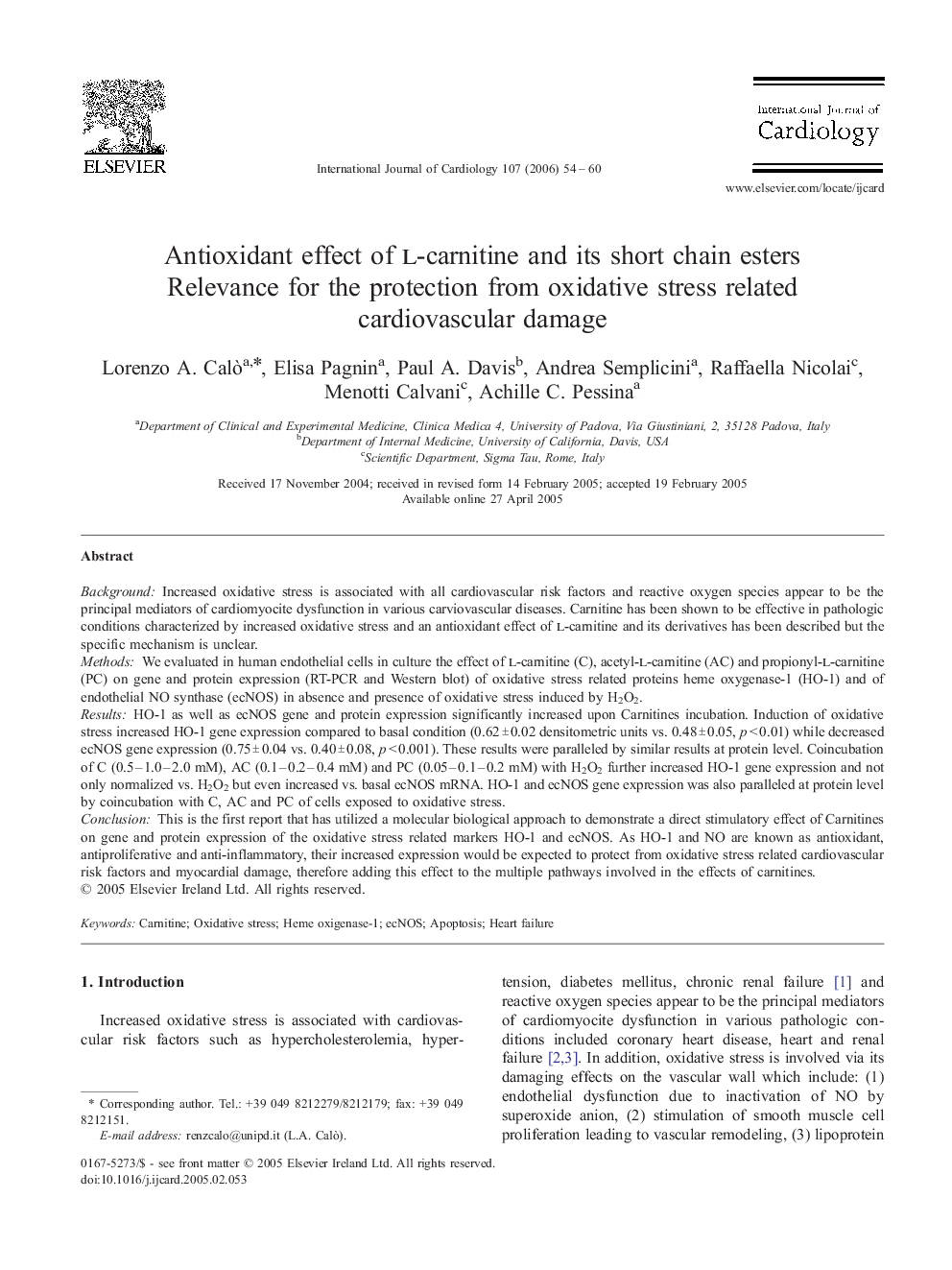| Article ID | Journal | Published Year | Pages | File Type |
|---|---|---|---|---|
| 2936686 | International Journal of Cardiology | 2006 | 7 Pages |
BackgroundIncreased oxidative stress is associated with all cardiovascular risk factors and reactive oxygen species appear to be the principal mediators of cardiomyocite dysfunction in various carviovascular diseases. Carnitine has been shown to be effective in pathologic conditions characterized by increased oxidative stress and an antioxidant effect of l-carnitine and its derivatives has been described but the specific mechanism is unclear.MethodsWe evaluated in human endothelial cells in culture the effect of l-carnitine (C), acetyl-l-carnitine (AC) and propionyl-l-carnitine (PC) on gene and protein expression (RT-PCR and Western blot) of oxidative stress related proteins heme oxygenase-1 (HO-1) and of endothelial NO synthase (ecNOS) in absence and presence of oxidative stress induced by H2O2.ResultsHO-1 as well as ecNOS gene and protein expression significantly increased upon Carnitines incubation. Induction of oxidative stress increased HO-1 gene expression compared to basal condition (0.62 ± 0.02 densitometric units vs. 0.48 ± 0.05, p < 0.01) while decreased ecNOS gene expression (0.75 ± 0.04 vs. 0.40 ± 0.08, p < 0.001). These results were paralleled by similar results at protein level. Coincubation of C (0.5–1.0–2.0 mM), AC (0.1–0.2–0.4 mM) and PC (0.05–0.1–0.2 mM) with H2O2 further increased HO-1 gene expression and not only normalized vs. H2O2 but even increased vs. basal ecNOS mRNA. HO-1 and ecNOS gene expression was also paralleled at protein level by coincubation with C, AC and PC of cells exposed to oxidative stress.ConclusionThis is the first report that has utilized a molecular biological approach to demonstrate a direct stimulatory effect of Carnitines on gene and protein expression of the oxidative stress related markers HO-1 and ecNOS. As HO-1 and NO are known as antioxidant, antiproliferative and anti-inflammatory, their increased expression would be expected to protect from oxidative stress related cardiovascular risk factors and myocardial damage, therefore adding this effect to the multiple pathways involved in the effects of carnitines.
